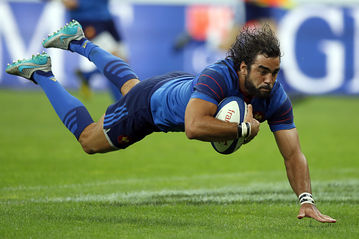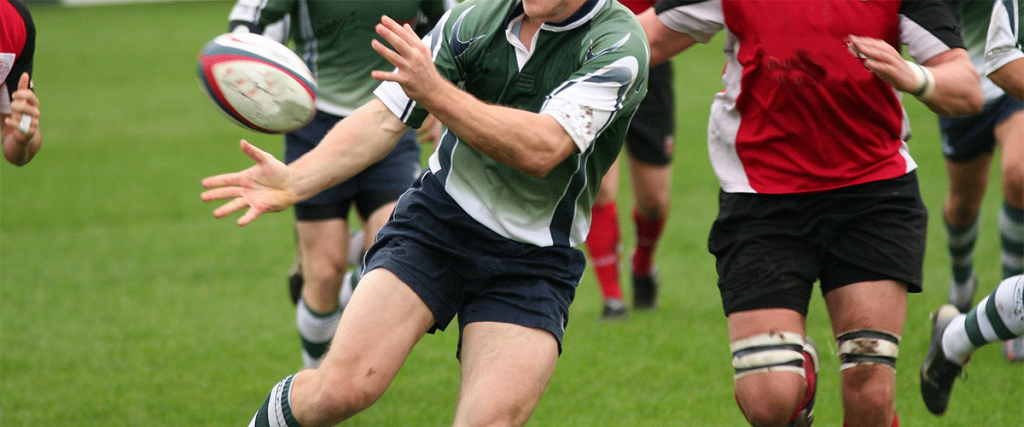
The 2010 Super 14 seasons began in February. It ended May 29. Each team played a round robin series against 13 other teams, accumulating three and half months of match play. This year's schedule also included a record number of referees, with at least eighty percent of games refereed by Merit Panel referees.
In terms of performance evaluation, studies utilised various indicators to measure performance, including turnovers, points scored, clean breaks, tackles made, kicks out of hand, and tries. These indicators could be used in both offensive and defensive situations. However, most studies were focused on attacking-related variables.
Some studies showed that winning teams were less likely to be tackled. This may be due to the rule changes favouring defensive teams in breakdown situations. Other variables that had a greater impact on success were higher average carrying metres, lineout success against the opposition ball and clean breaks.

Some studies have shown that point scoring does not correlate with match outcome. However, these studies were limited to results from lower level competitions and did not include data about collective team behaviour or other confounding variables. It is difficult for us to see a correlation between point scoring and performance or draw any conclusions about the importance of it in rugby.
Another study looked at the relationship between tackle contest events and performance, which are measures in defence. This showed that tackles were more likely to result in a win for the winner. Although some studies did not find conclusive results, they were able to establish a positive correlation between turnovers and points scored.
K-modes cluster analyses was used to identify common play patterns, such plays that follow scrums or lineouts. These patterns resulted from both the physical constraints of playing the game and self-organising interactions among players.
Pretoria's Bulls are the most consistent team in this tournament. They have won fourteen consecutive matches at home, and have been unbeaten in the tournament since they won the title in 2012. Their forwards are fast and capable of going wide. Despite their record however, the Bulls are not performing to their full potential. They are not the side that can rescue a slump at elevation.

Although the Hurricanes can be tough on their day, they have yet to reach their full potential. Nevertheless, they will lose in Christchurch. However, they will have All Blacks centre Conrad Smith back and test halfback PiriWeepu back. This combination is strong.
Although the Cheetahs can be a strong team, they will need to overcome the loss in star forward Heinrich Brussouw. They're coached Juan Smith but aren't as well known as the Stormers. Nonetheless, they've been better in recent years, and should beat the Sharks.
The Waratahs are a solid side on their day, but they're looking for a win with a bonus point. That should secure a place for the semi-finals.
FAQ
Are children allowed to do extreme sports?
The answer depends on whether you discuss sports as a whole or individual sporting activity. They should do all the activities. However, this will vary depending on the kind of skiing they choose. Some people like extreme sports, such as bungee-jumping, while others prefer the more gentle downhill skiing. It also depends on the amount of risk involved. Skydiving is not something that someone who enjoys bungee jumping would enjoy if they were afraid of heights.
Who is willing to go to the extreme?
Extreme sports are enjoyed by all abilities and ages. Extreme sports appeal to children just as much as it does to adults.
Younger children may play tag, dodgeball, or capture the flag. You can compete against other children by joining a team.
Adults can either participate in team sports or individual sports. There are many ways to find a team.
You'll probably need to ask someone who's already done it to show you how to start playing.
What makes a sport extremely extreme?
Since ancient times, sports are a part of our daily lives. They've evolved from being purely athletic competitions to becoming full-fledged entertainments. Some sports are so beloved that they are now part of our culture.
Extreme sports may be due to the intense competition. Professional basketball players often play each other for hours on end. Other sports are more extreme as they require special equipment. Snowboarding, for instance, is riding down hills on boards that have two wheels attached to their bottoms.
Others sports are considered extreme due to their different rules. For example: Soccer is played differently from American football.
Some extreme sports involve athletes performing feats that are beyond their abilities. Gymnastics is one example of extreme sports. The athletes must balance on various objects to avoid falling.
Which companies are most likely sponsor extreme sports?
Sponsoring extreme sports events like BMX, skateboarding and snowboard competitions is a common practice for large corporations with large advertising budgets. They also tend to be active in their local communities. Coca-Cola, for example, sponsors many local sporting events as well as other activities across North America. Coca-Cola sponsors youth camps and programs both at the local and national level. Coke also sponsors the annual Coca-Cola Rock'N'Roll Marathon in New York City. This event attracts approximately 100,000 runners from all over the world.
Statistics
- Based on the degree of difficulty, the routine is scored on form and technique (50 percent), takeoff and height (20 percent), and landing (30 percent). (britannica.com)
- Overall participation has grown by more than 60% since 1998 - from 5.9 million in 1998 to 9.6 million in 2004 Artificial Wall Climbing. (momsteam.com)
- Since 1998, overall participation has grown nearly 25% - from 5.2 million in 1998 to 6.5 million in 2004. (momsteam.com)
- Boxing— 90% of boxers suffer brain damage over their careers, and this is not surprising in the least, considering that they are throwing punches at each other's heads. (rosenfeldinjurylawyers.com)
- Nearly 30% of all boardsailors live in the South, and more than 55% of all boardsailors live in cities with a population of more than two million people (momsteam.com)
External Links
How To
How do you master parkour?
Parkour can be described as a free-running technique in which people run through obstacles, such as trees, fences or buildings. It is one of the most well-known sports, with millions of participants all over the globe. Parkour can be done in many ways, including freestyle, wall climbing and obstacle courses, urban exploration, rescue, freerunning and urban combat.
Any activity that increases your health and physical fitness can be called fitness. It could be walking, working out, or doing cardio. Parkour is considered an athletic sport since it requires athletes who can use their body strength, speed balance, coordination, agility, and coordination.
Here are some tips for parkour beginners:
-
Places that can cause injury or stairs should be avoided. Avoid hills and choose flat ground. If you are able to climb up trees, go for it.
-
Shoes made from leather, rubber, or leather should be worn. If you don't know what type of shoe works best for you, try them all and see which ones feel good. The right shoes are crucial for a successful parkour session.
-
Take water bottles with you and snacks for practice sessions.
-
Warm up first before you begin your parkour session. This is warming up your muscles before you start the parkour session. You can start slow and increase the intensity gradually until your muscles are fully prepared.
-
Don't put too much emphasis on your arms or legs when you jump. Instead, focus on your core strength and back muscles when jumping.
-
Don't push yourself too hard; instead, take breaks every now and then. This will allow you to rest and recover after a workout, without getting hurt.
-
Parkour can be enjoyed while you listen to music. Music helps you relax, concentrate better, and makes it easier to focus.
-
Stretch your muscles and joints after each session to prevent injury.
-
Keep your surroundings clean, especially when you are practicing in public places. You won't endanger another person by doing this.
-
Keep track of your progress and keep a record of it in a notebook. This will help you to always recall your strengths and weaknesses.
-
Parkour is meant to be enjoyed. So enjoy the process and never let the fear of falling hold you back. If you fall, pick yourself up and move on.
-
Every day you can learn new tricks.
-
Be sure to eat healthy meals. Consuming a high-protein diet will allow you to gain muscle mass more quickly.
-
You should find a mentor. Mentors will teach you how to do certain moves, as well as offer tips and advice about improving your skills.
-
Never be afraid to ask questions. You will find fellow enthusiasts love to learn new things. If you have any questions, don't be afraid to ask!
-
Practice makes perfect. Get out there and train as often as you can.
-
Have fun!
-
Last but certainly not least, keep safe!